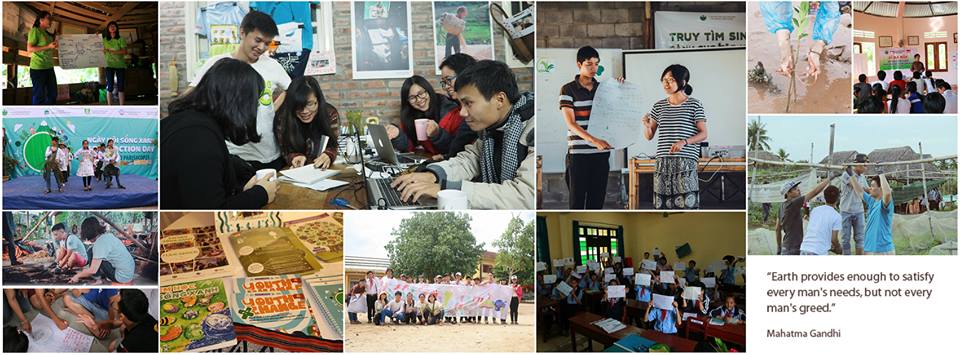TRAINING ON PEOPLE`S PARTICIPATION IN THE ALLOCATION PROCESS OF LAND AND FOREST IN THUA THIEN HUE AND QUANG NAM PROVINCES, JUNE
The training courses provided basic and simple information about land and forest allocation process to communities in Vietnam. The training guided participants how to make a completed forest allocation profile. Participants also learned the role of customary law and convention in community forest management, protection and development.
Policy for community forest management has been implemented for quite a long time in Vietnam; however, direction for locals to manage and protect forests is still ineffective. The training course summed up the steps for community land and forest allocation processes. Participants learned what each phase would look like for local people: preparation, receiving profiles, checking profiles, evalutating and completing profiles.
Photo: Group discussion in Xa Nghin I
Photo: Group discussion in Khe Tran
Participants provided the feedback that they were struggling with the forest allocation profile content. This is due to the low literacy rate and complicated procedures. Almost all the local people said that in order to have a completed profile, they needed to have meetings and make boundaries. Local people do not remember them ever participating in forest allocation management by joining the commune allocation management board, training, or writing to receive forest. Another situation that was experiences, was participation as a follower, but not as a future forest owner monitoring the results of government agencies. The content which they did remember was mainly by guessing or repeating what the previous ones had said.Only some of them were allowed to participate in activities with local agencies and authorities.
The Cơ Tu people (Xa Nghin 1, Quang Nam) and Pahy (Khe Tran, Hue) always followed and developed the values of customary law and conventions left to them from their ancestors in terms of forest management, protection and development. It would be very effective if local people learned how to select and improve these values and relay them to future generations.
After 2 days of the training course, participants were pleased with the organization and the content transferred from the experts. The knowledge they learnt from this training will help them to build their capacity in local forest management and protection following the land and forest allocation policy of the government.
